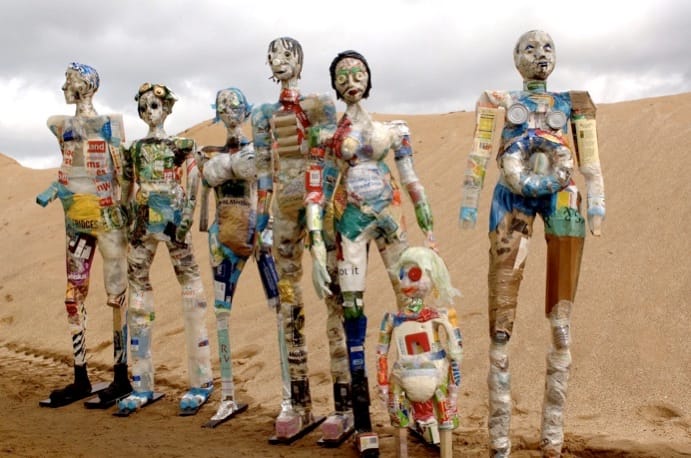With the motto “Italian by nature, Turkish by design, and American on demand,” bathroom and kitchen company BOCCHI, brings the distinctive aesthetic essence of the Mediterranean to America, incorporating recycled designs from the students of Arkin University of Creative Arts and Design (ARUCAD).
With roots dating back to the 1950s, BOCCHI is one of the leading companies that paved the way for an industrial journey from the Mediterranean to America with its bathroom and kitchen designs that blend classic design with modern lines. So much so that some of the kitchen and bathroom sinks, which bear the signatures of Italian and Turkish designers, are industrially produced but somehow damaged or broken. This was transformed into artistic works of art with the creativity of the university students within the scope of a recycling project organized in cooperation with ARUCAD and BOCCHI.
The contribution of art to social change has been undeniably great with the meaningful works of art that have emerged in recent years. In particular, the recycling of countless materials classified as waste products and bringing them into art contributes to the artistic creation process in terms of paving the way for awareness and social sensitivity on this issue. In this respect, the structure of art that encourages transformation acts as a mirror in the process of social change. The importance of the United Nations Sustainable Development Goals for Responsible Consumption and Production is emphasized by these students by bringing waste materials to artistic life through their recycling efforts using sustainable materials such as ceramics.
The design competition titled “Beauty in the Breakage: From Broken to Beautiful,” organized by collaboration between the university and the design company, allowed future generations to develop and experience an art form that will contribute to the ecology.
ARUCAD students and graduates who won the competition were allowed to exhibit their works on an international platform and make their names known as they shed light on social awareness in the international arena. The works of the students, within the scope of the competition, were exhibited at ARUCAD Art Gallery, and the winning artworks of the competition will be held at the prestigious Kitchen and Bath Industry Show (KBIS) and International Builders Show (IBS) in Las Vegas on Feb. 2024. In addition, all proceeds from the exhibition will also be donated to three separate non-profit organizations operating in the United States, Turkey, and internationally to support sustainable art created.
The artists, who strive to express social awareness and sensitivity through sustainable artworks, emphasize social problems such as gender discrimination, inequality, marginalization, and political events, especially global environmental problems, through their works. The emotional interaction method artists create to establish deep emotional bonds with people and draw their attention to social problems through the colours, symbols, and materials they choose to use in their works indicates the existence of a powerful door opening to the emotional world of art.
The fact that ARUCAD students mainly include face and eye motifs in the works they create from broken ceramic pieces indicates that they have opened a door to the social problems in question through art, as an observer. Using natural stones in their works and depicting natural beauties such as waterfalls shows that they are making a call to global environmental problems through the works they recycle.

For university students who have been working feverishly in the process of transforming BOCCHI's damaged or broken kitchen or bathroom sink pieces into art, the works exhibited in the Sustainable Art Competition serve as a milestone on the importance of environmental and social awareness for future generations. For this reason, this design process, which realizes an important mission to both raise environmental awareness within the art and design community and contribute to social responsibility, turns into an extraordinary artistic platform for university students who transform broken ceramic pieces into works of art, where they exhibit their creative ideas.
